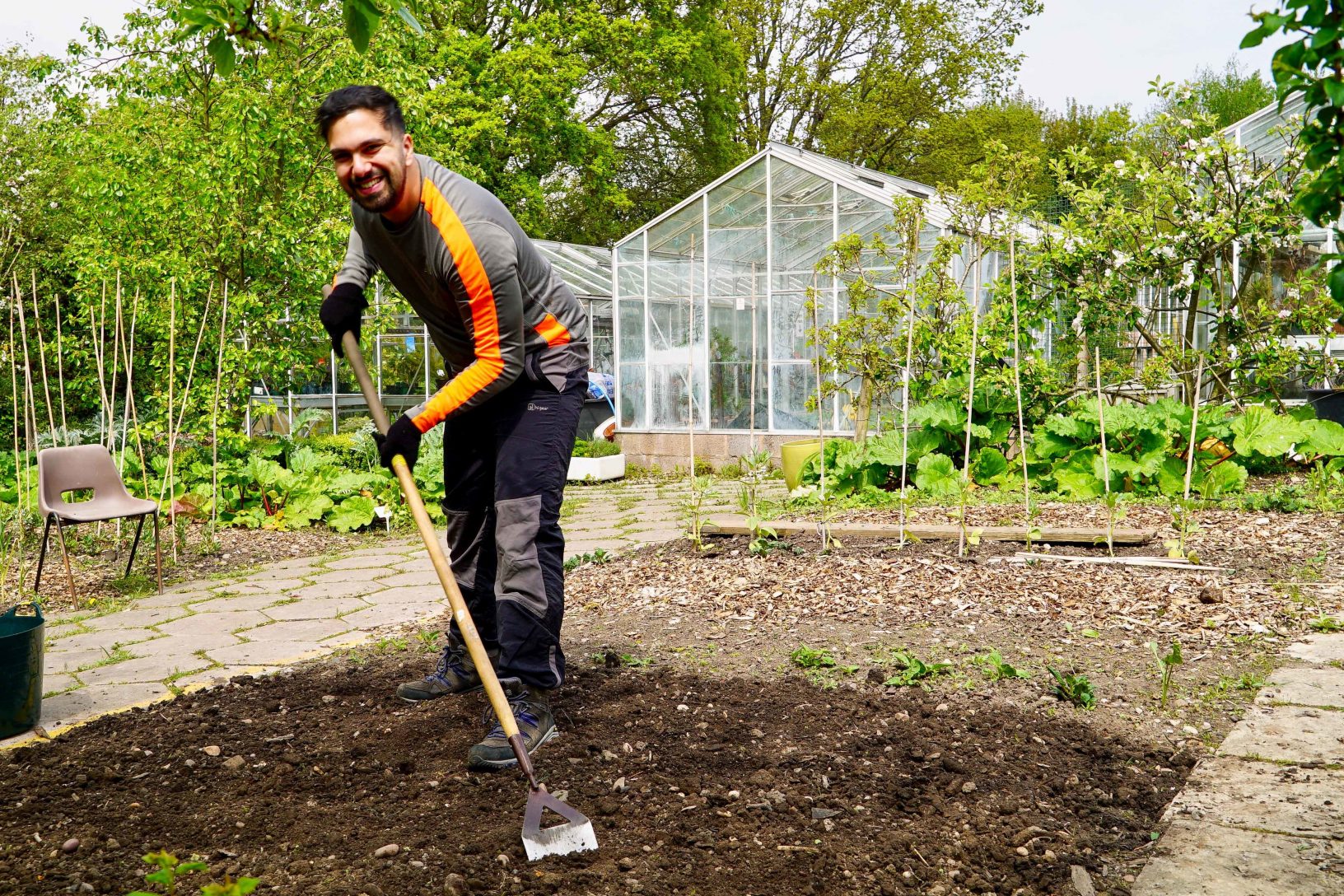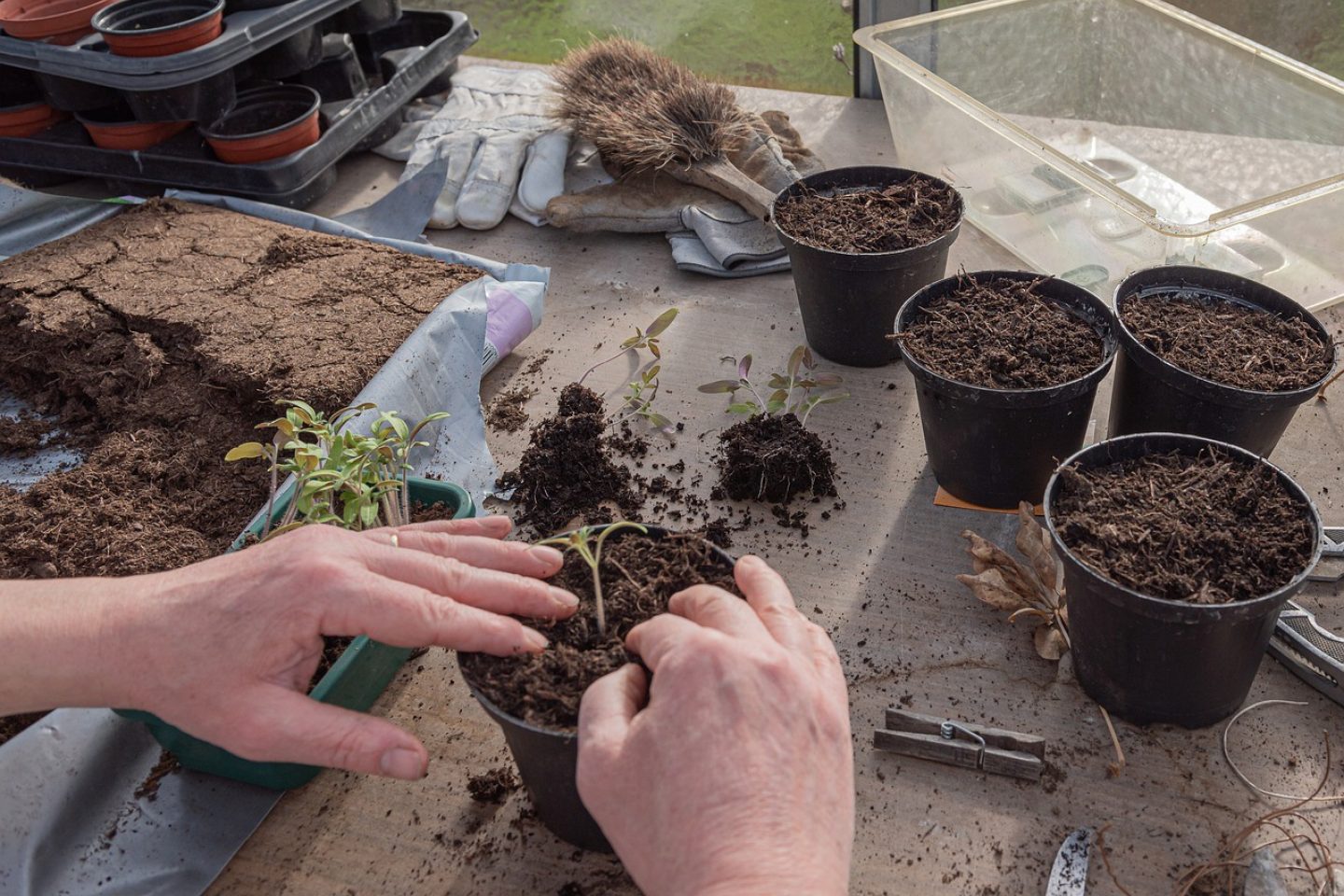
Have you ever thought that gardening could change the way you feel? Ask any gardener why they enjoy gardening and time and time again they will say it makes them feel good.
Being in the garden gave me a sense of calm that I hadn't felt before.
Catherine, home gardener
At Thrive, we have been promoting gardening for health for decades. It is at the core of our services and information.
Gardening can bring something different for each individual. These are five of the key benefits for your health and wellbeing.
1. Gardening can support your physical health

Gardening offers ways to use and move your body. This could be through physical tasks that burn calories. Or, it could be through gentle activities that develop fine motor skills.
Activities like digging, raking and mowing are calorie burners. They can help you achieve 150 minutes of light aerobic exercise a week, as recommended by the Department for Health.
Some gardening activities can help keep your body flexible and build muscle strength. Others, like sowing seeds or completing craft projects, can help maintain dexterity.
2. Gardening is good for mental wellbeing

Gardens are special spaces that can have restorative qualities.
A large body of evidence shows time in a green environment can reduce stress and improve wellbeing. The Royal College of Physicians collated research for a journal article on gardening for health. They found regular gardening could potentially reduce pressure on NHS services.
A study in Japan showed that simply looking at plants reduces stress, anger and sadness. Research by the charity MIND showed short walks in gardens improve mental health.
We have also conducted research at Thrive. We surveyed 317 people who took part in table-top gardening sessions. Some 80% felt their mental health improved from doing it.
Gardens can support our mental wellbeing in so many ways. From building confidence to boosting mood or feeling calm, gardens offer choice and creativity.
Available now on iOS and Android, helping you garden your way to better health
Find out more3. Gardening can make you feel part of a community

At Thrive, we see first-hand how gardening together can help you feel connected. People on our Social and Therapeutic Horticulture programmes often say they build confidence and makes them feel less alone.
There is a huge community here … Mentally it is a continual challenge, but I wouldn’t stop it, no way. I’ve made very good friends here.
Nick, client gardener at Thrive
Looking after your own garden can sometimes be a solo activity. But, there are plenty of ways to connect with others. Swapping plants and advice with friends and neighbours can help build bonds. You could even team up on bigger tasks. Or, you could join a local gardening club or community garden. The RHS has a directory for a large number of gardening groups nationwide.
4. Gardens allow you to keep learning

Learning is one of the Five Ways to Wellbeing. The New Economics Foundation developed these, commissioned by the UK Government. These are designed to improve the mental health and wellbeing of the whole population.
Continued learning could mean trying something new or rediscovering old interests. It provides an opportunity to build confidence and have fun.
Turning an area of the garden into a mini allotment … turned out to be the best thing I ever did. It gave me confidence and helped me learn about plants: how to look after them, feed them, prune them.
Nikki, gardening blogger
Gardening is a constant voyage of discovery. You could be growing something new, learning different techniques or getting to know nature better. It’s a chance for lifelong learning.
5. Gardens let you enjoy time in nature

Gardening and time in nature offer enormous potential to improve our health. Evidence from environmental psychology suggests time in nature can tackle mental fatigue. It can also have a positive impact on our brain chemistry, influencing the release of serotonin and cortisol, which help us feel good.
For many gardeners, a daily stroll around the garden is one of the most enjoyable things to do. It allows you a peaceful moment to see what has grown or changed.
You don’t need an enormous garden to benefit from time outdoors. You can still grow plenty of plants on a balcony and attract wildlife for you to sit and observe.
We have developed a 6-page leaflet on the feel-good factor of gardening. It includes a few simple ideas to get you started with gardening and plants.
Find a link in the publications section of our website.